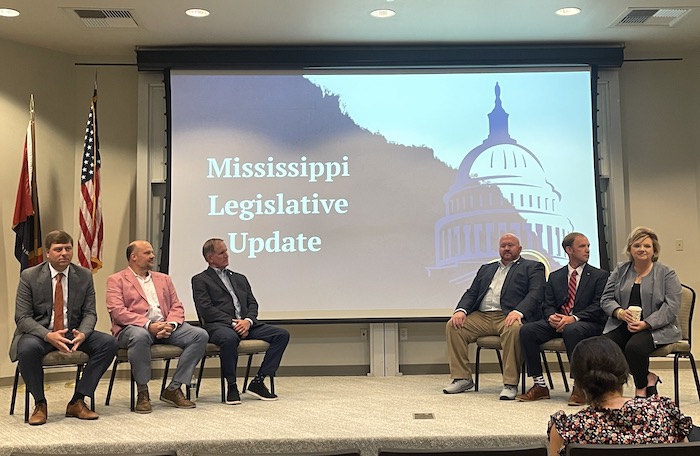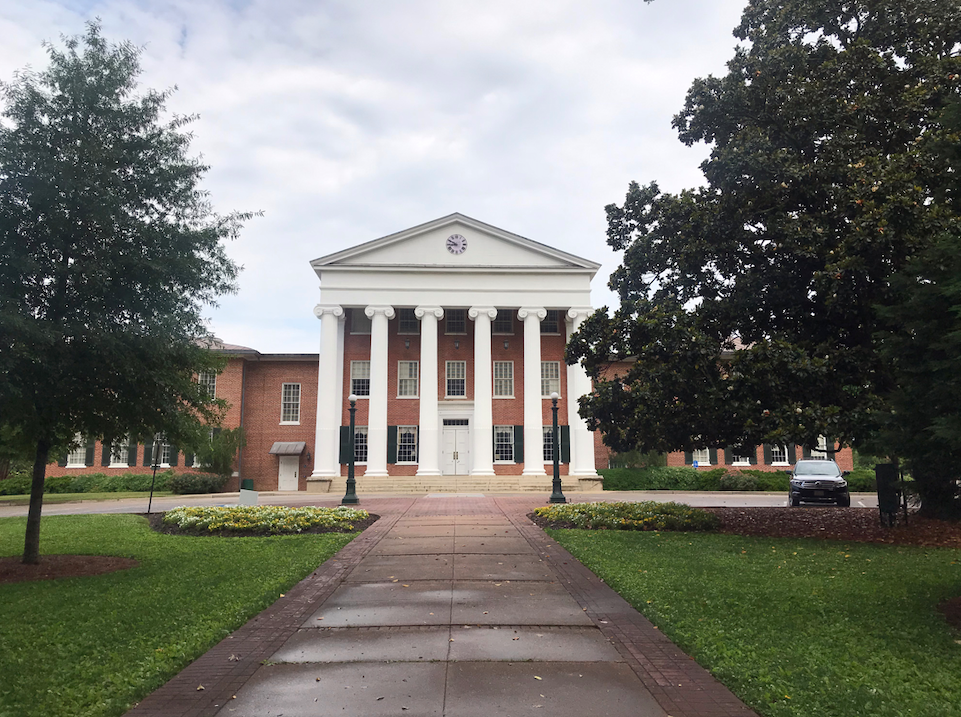Elected officials update community on Legislative session
Published 3:45 pm Wednesday, May 7, 2025

- From left: Rep. Clay Deweese, Sen. Ben Suber, Rep. Steve Massengill, Rep. Josh Hawkins, Sen. Ben Suber and Sen. Nichole Boyd. Photo by Alyssa Schnugg
Local representatives and senators from Oxford and Lafayette County presented a comprehensive overview of the legislative achievements from the most recent session during the annual Eggs & Issues breakfast meeting held Wednesday at the Oxford Conference Center.
Presented by the Oxford-Lafayette County Chamber of Commerce and the Economic Development Foundation and sponsored by NE SPARC, the legislators spoke about tax reforms, criminal justice measures, infrastructure funding and more.
Attending the event were Senators Nichole Boyd, Ben Suber and Neil Whaley and Representatives Clay Deweese, Steve Massengill and Josh Hawkins.
One of the most significant developments discussed was the plan to fully eliminate the state income tax. Originally proposed years ago, this measure gained momentum after a series of policy summits and negotiations. Lawmakers ultimately agreed on a phased approach that begins in 2027, reducing the income tax to 3% by 2030. Afterward, built-in economic triggers will determine further reductions, with a goal of full elimination within 14 years, without requiring additional legislation.
Legislators also approved a reduction in the grocery tax, lowering it from 7% to 5% starting July 1.
While cutting some taxes, the Legislature also passed a fuel tax increase—the first since 1987.
“Nobody likes tax increases, but no one is living on the same money they made in 1987,” said Massengill, who serves as chair of the Transportation Committee.
The fuel tax will rise by 09 cents over three years, generating an estimated $217 million. Each penny increase translates to approximately $43.75 million in revenue. Most of the new funding will support road maintenance, with allocations to state aid, intermodal and multimodal infrastructure projects.
MDOT is expected to receive around $160 million, a significant boost to its budget.
Legislators also addressed public safety and social issues with a slate of bills aimed at protecting vulnerable populations and improving law enforcement tools including a bill that places limitations on public encampments, new criminal charges to prevent inappropriate relationships where adults “groom” minors for sexual purposes; implementing a mandate that all hospitals must stock and process rape kits.
Other bills that were signed into law included expanding the window which fireworks can be sold legally; allowing inmates to clean highways; the Blue Envelope policy, housing inmates based on biological sex at birth and regulating cigarettes and vapes that are not from the United States.





